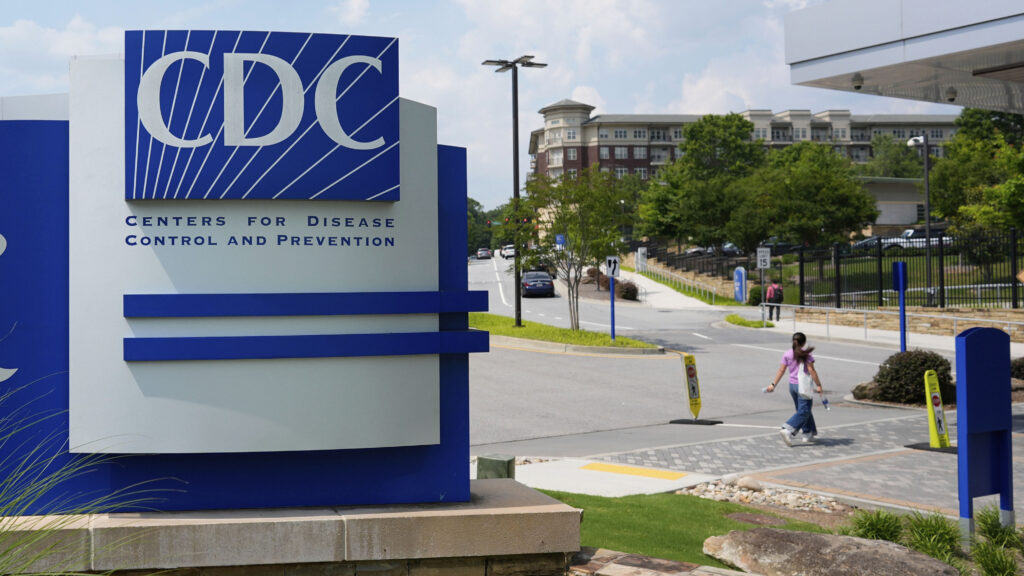Get your daily dose of health and medicine every weekday with STAT’s free newsletter Morning Rounds. Sign up here. Good morning. Who’s running a turkey trot in a few days? I need to start stretching now. FDA reviewers didn’t get to vote on first priority voucher drug Typically, the FDA’s drug approval decisions are made by the individual reviewers most familiar with a treatment’s application and the science behind it. But when the agency held its vote for the first product from a company that received a priority voucher, the review team did not get a say. Instead, the voting panelists were leaders from the top of the agency, according to three agency sources who talked with STAT’s Lizzy Lawrence. “This is overtly political,” said bioethics and law professor Holly Fernandez Lynch. “The vibes are going to change if the commissioner is part of the discussions.” 7 in 10 That’s the number of people or nearly, at 69% enrolled in Medicaid who don’t get treatment within six months of an opioid use disorder diagnosis, according to a study published today Researchers analyzed data from adult enrollees in 44 states between 2016 and 2019. Just over 3% of those people experienced an overdose episode. The risk for overdose was reduced when people took methadone and buprenorphine in particular. With major Medicaid cuts on the horizon, the study authors are worried that even more people will struggle to access these effective treatments. (Your regular reminder to read Lev Facher’s War on Recovery series if you haven’t already.) Closing the hemp loophole? In 2018, Congress passed language that legalized hemp products up to a specific and low concentration of its naturally occurring, high-inducing compound: delta-9 THC. But in the spending bill passed by Congress to reopen the government this month, there was a provision that will bar all intoxicating THC products, turning the clock back to a time when songs like “Despacito” and Imagine Dragon’s “Believer” were topping the charts. This means that all forms of marijuana would be considered illegal controlled substances, leaving many Americans suddenly without access to products they say are essential to their well-being. The ‘quiet magic’ of a Healthy Start case manager When the Healthy Start program began in 1991, there were 15 teams across the country whose role was to visit families during or after pregnancy. By 2025, there were 115. The team members teach parents how to breastfeed and how to safely click their babies into car seats. They provide transportation to doctors’ appointments and help families find housing, food, and health insurance if needed. But now, the program is at risk. This is the third year in a row that the House Appropriations Committee had proposed eliminating its funding, and last month, President Trump fired every employee in HRSA’s Healthy Start division. STAT’s Eric Boodman visited Healthy Start case manager Malaika Milele Gardner in New Orleans recently, spending time with her and one of her clients, Erica Williams. In the photo above, taken at their last meeting for the program, Milele Gardner gifted Williams a potty for her 18-month-old baby, Demi. Read more about how both Milele Gardner and Williams both perform what Eric beautifully recognized as “the sleight of hand at the heart of parenting: to provide a sense of stability while facing instability oneself.” A former scientific leader at CDC died at 94 Walter Dowdle, a former scientific leader of the Centers for Disease Control and Prevention, has died at the age of 94. A microbiologist, Dowdle spent 34 years at the CDC, rising to positions that included the inaugural director of the then Center for Infectious Diseases, principal deputy director, and for nearly two years, acting CDC director. He retired from the CDC in 1994, joining the Task Force for Global Health, which is based in Atlanta. In 2012, he left the task force, moving to a farm in southern Georgia. Former CDC director William Foege said Sunday that even though CDC has had a host of very good scientists over the years, Dowdle stood out as one of the best of the best. “He was so good as a scientist, but he was so good as an administrator and a person.” When the Center for Infectious Diseases was being established, laboratorians didn’t want to work under an epidemiologist, so Foege asked Dowdle twice to run the new center. He was initially reluctant, but agreed and “he did a great job.” “He was a good manager, a good communicator, and . was very generous with his time. Everybody learned a lot from him,” Foege said. A celebration of life will be held Dec. 12. Helen Branswell How to prepare for attacks on neurodiversity For Jack Pemment, the problem with the neurodiversity movement starts with its name. We’re all neurologically unique, or neurodiverse, in some way. It also relies on an othering: neurodivergence from the neurotypicals. “But the idea of the other quickly collapses with neurodiversity because there is neurodiversity within neurotypicals,” Pemment writes in a new First Opinion essay. “You are even neurodiverse from the you who started reading this paragraph a few seconds ago.” He’s not saying the name needs to change. But Pemment, who is autistic himself, worries that vague language and definitions will allow the growing social movement around neurodiversity to be attacked. Advocates need credible responses so momentum isn’t lost, he argues. What we’re reading.
https://www.statnews.com/2025/11/24/health-news-attack-on-neurodiversity-fda-cdc/
A former scientific leader at CDC died at 94

